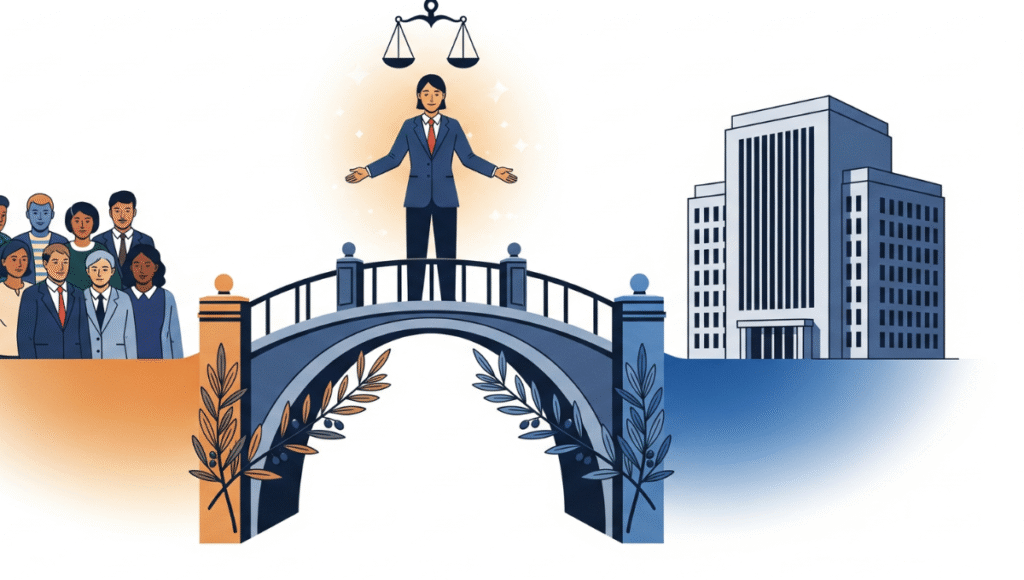Ombudsmänner play a vital role as guardians of fairness and transparency within public institutions. In a world where bureaucracy can seem impenetrable, these dedicated advocates ensure that your voice is heard, your rights are protected, and justice is served. This blog post explores how ombudsmänner uphold accountability by navigating complex systems—championing citizens everywhere and transforming challenges into opportunities for change. Whether you’re curious about their powers or seeking guidance on how they can assist you, you’ve come to the right place!
Introduction to ombudsmänner
Transparency and accountability have never been more essential. Ombudsmänner step up as vigilant guardians in public institutions. Their crucial role? Ensuring fairness for citizens as they navigate the complicated bureaucratic maze of government services. But who are these protectors of justice? What powers do they hold, and in what ways have they adapted over time to meet society’s needs?
With this foundation in mind, let’s delve deeper into the fascinating world of ombudsmen. Their story spans history, responsibility, and a powerful impact on public life. Serving as a bridge, ombudsmänner connect the people with governmental entities. Discover with us why these figures are indispensable in safeguarding our rights within public institutions.
History and evolution of the ombudsmänner concept
The concept of the ombudsmänner dates back to 1809 in Sweden. The Swedish Parliament established this role to ensure citizens had a way to address grievances against government actions.
Over time, other countries recognized the value of an independent oversight figure. By the mid-20th century, nations such as Finland and New Zealand had adopted similar systems. This expansion allowed for more robust public accountability.
As societies evolved, so did the responsibilities of ombudsmänner. They began addressing various issues beyond individual complaints, including systemic injustices and policy failures within public institutions.
In recent years, global movements for transparency have transformed the role. Today’s ombudsmänner often use technology to enhance their outreach. This makes them more effective in serving communities.
Countries tailor their models to unique cultural contexts while maintaining core principles centered on fairness and impartiality.
How ombudsmänner are appointed and their responsibilities
ombudsmänner hold unique roles within public institutions: they serve as checks on power and advocates for fairness. The way they’re appointed varies greatly by country. Sometimes, parliamentary processes come into play; in other cases, appointment rests with heads of state.
Once in office, ombudsmänner take on several critical responsibilities. They investigate complaints from citizens regarding government actions or decisions that may seem unjust. This involves gathering evidence, interviewing witnesses, and analyzing policies.
Beyond resolving individual complaints, ombudsmänner identify systemic issues. Through reports and recommendations, they push for reforms that improve transparency and accountability.
Crucially, ombudsmänner must maintain independence from the entities they oversee. This autonomy ensures that their investigations remain unbiased and credible in the eyes of the public they serve.
You Might Also Like : HMS Photovoltaik
The importance of an independent and impartial ombudsman
An independent and impartial ombudsman is a cornerstone of public trust. When citizens know an unbiased figure oversees grievances, they gain confidence in institutions.
Independence ensures decisions are made without external pressure. This autonomy is vital for credibility. An impartial approach allows fair assessments regardless of the parties involved.
Without neutrality, the essence of accountability is lost. People may hesitate to voice concerns if they sense bias.
An independent ombudsman serves as a buffer between citizens and the government. They offer a platform for individuals to seek redress without fear of retaliation or discrimination.
Ultimately, ombudsmänner promote transparency and justice in public institutions. These elements are essential for any democracy to function effectively.
Case studies showcasing the impact of ombudsmänner investigations
Ombudsmänner play a crucial role in ensuring accountability within public institutions. Their investigations often lead to significant changes that benefit citizens.
One notable case involved a public housing authority. Residents complained about unsafe living conditions. The ombudsman conducted an independent investigation and uncovered systemic neglect. As a result, the authority had to address safety violations and improve living standards.
Another example comes from the education sector. An ombudsman investigated complaints about discrimination in school admissions. Through research and dialogue with stakeholders, policies were revised to promote inclusivity and fairness.
These cases show how ombudsmänner can drive real change by addressing grievances. Their findings address individual issues and inform policy improvements, thereby enhancing community trust in public services.
Challenges faced by ombudsmänner in their work
Ombudsmänner play a crucial role in maintaining fairness, though daily challenges abound. Public awareness is a major hurdle. Many individuals are unaware of their rights or that an ombudsman exists to assist them.
Limited resources are another common obstacle. Ombudsmänner offices often operate with tight budgets. This restricts the number of cases that can be handled effectively and may prevent thorough attention to every complaint.
Political pressures can also interfere with their work. An independent ombudsman must navigate these challenges carefully to maintain public trust.
Navigating complex bureaucracies is another challenge. Each institution has its own rules, making it hard for ombudsmänner to advocate for citizens’ concerns.
These obstacles require resilience and dedication as they strive to uphold justice amidst various constraints.
Comparisons between different countries’ approaches
Countries differ greatly in their approach to ombudsmänner. Sweden pioneered the concept in 1809, establishing a strong tradition of accountability. Swedish ombudsmen have broad authority and can investigate any government agency.
Australia uses a decentralized model. Each state has its own ombudsman with specific jurisdictional limits. This allows tailored responses but can lead to inconsistencies across regions.
Canada focuses on specialized ombudspersons for various sectors, such as healthcare or children’s rights. This ensures focused oversight.
In some countries, like the United States, the role is less formalized and varies by state. Advocates push for stronger structures to improve transparency.
These differences reflect cultural values and governance styles. Each society seeks fairness through its own guardians of public interest.
Role of ombudsmänner in accountability.
The future of ombudsmänner offers great potential for improving fairness and accountability. As societies evolve, expectations of these justice guardians grow.
With technology, ombudsmen can utilize data analytics to identify issues more quickly than before. This proactive approach helps address grievances early.
Public awareness of rights and transparency is growing. Citizens are demanding stronger ombudsman systems and timely resolutions from authorities.
International collaboration among ombudsmänner may become a key trend. Sharing best practices will help countries strengthen their frameworks while learning from each other.
As openness increases, the role of ombudsmänner will expand. Their importance in safeguarding equity will only grow.
Conclusion
Ombudsmänner are vital for fairness and accountability in public institutions. Their investigations, advocacy, and transparency efforts are invaluable. As guardians of justice, they bridge the gap between government and the public.
An independent ombudsman builds trust in government processes. It reassures citizens that their voices are heard and rights protected. Without this oversight, many might feel powerless against bureaucracy.
As the world becomes increasingly complex, such figures become even more essential. Ombudsmen address individual grievances and work for systemic improvements that benefit society.
Empowering these officials ensures that our democratic principles remain intact, fostering a culture where fairness prevails over injustice. The commitment to uphold rights within public institutions rests significantly on their shoulders—and thus we must recognize and support this vital institution as it evolves to meet contemporary challenges.

